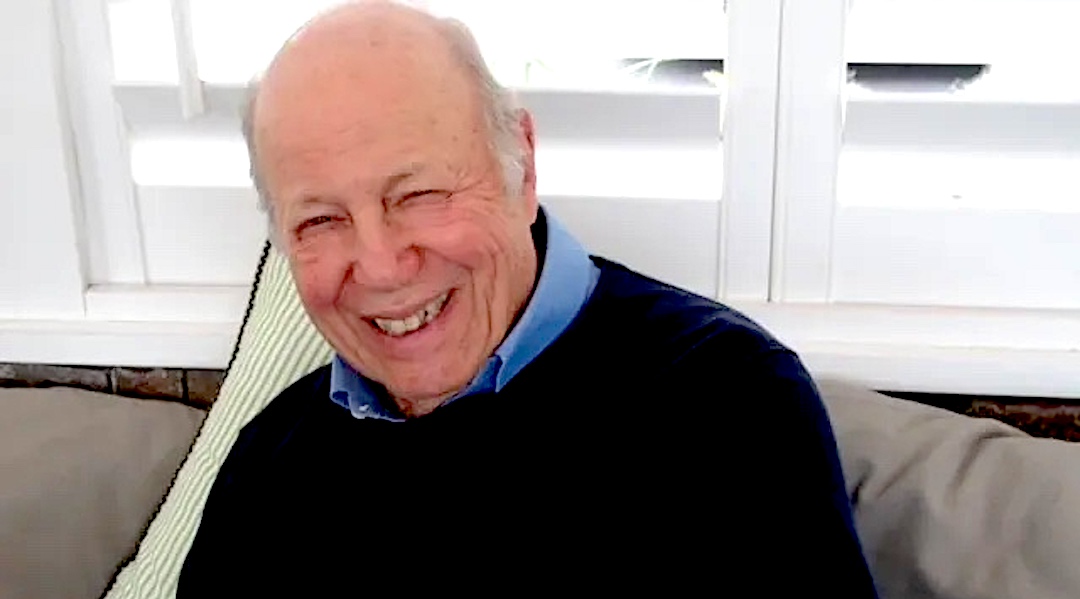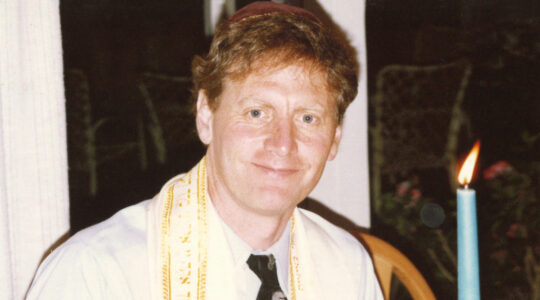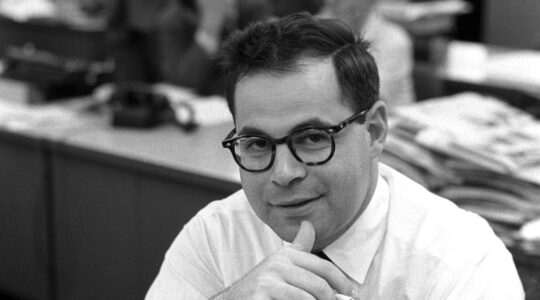(JTA) — Bert Pogrebin and Letty Jo Cottin were married in 1963, barely six months after they met. Over the next 60 years, they modeled a symbiotic marriage that was not just the envy of their friends on New York’s Upper West Side, but that also had political weight: A powerful labor lawyer and one of the most influential figures in the women’s movement, the couple demonstrated how two ambitious spouses could raise kids, pursue careers and support one another without rancor or bruised egos.
“He doesn’t need to prove his masculinity or big-foot others in order to feel like a man,” Letty Cottin Pogrebin, the author and a founding editor of Ms. Magazine, wrote of her husband in her 2022 memoir, “Shanda.” “He’s a Harvard educated lawyer with a stellar, decades-long career under his belt, but I’ve never heard him brag about himself (only about his kids, grandkids, and me).”
Bert Pogrebin, a longtime partner at Littler Mendelson P.C. who represented management in labor negotiations and wrote an essential textbook on the subject, died March 25. He was 89.
Pogrebin was also a co-founder and board member of the Appleseed Network, a nonprofit network of 18 public interest justice centers in the U.S. and Mexico founded by members of Harvard Law School’s Class of 1958. Last year his daughter, the writer Abigail Pogrebin, and son-in-law, David Shapiro, created the Bert Pogrebin Appleseed Fund for Justice, focusing on the organization’s work in New York.
At a memorial service March 28 at New York’s B’nai Jeshurun congregation, he was remembered by family and close friends from the intersecting worlds of liberal politics, feminism, the law and Jewish life, including Hillary Clinton, the actress Marlo Thomas, the singer Peter Yarrow and Rabbis Burton L. Visotzky, Angela Buchdahl and Felicia L. Sol.
“He was there to be supportive of [Letty], but much more and deeper: supportive of the kind of world that they both wanted for their children and their grandchildren,” Clinton, the former Democratic presidential nominee, secretary of state and senator from New York, said at the memorial service. “And we need people like Bert more than ever.”
Bertrand Pogrebin was born on April 10, 1934 in Brooklyn, the son of Abraham and Esther Pogrebin. The family later lived in Roosevelt, New Jersey, a rural cooperative community built by the Franklin Roosevelt administration largely for Jewish garment workers. “I experienced anti-Semitism in my rural high school, where all the students from my largely Jewish hometown faced hostility from the kids who weren’t Jewish,” he told the Forward in 2016.
Pogrebin attended Rutgers University and Harvard Law School, and for many years was a senior partner at Rains & Pogrebin, a law firm in the Long Island suburb of Mineola, New York.
Representing management as what his daughter Robin joked was the “good guy on the bad side,” he earned a reputation for fairness and civility that impressed even adversaries. Attorney Bruce Millman recalled working at Pogrebin’s law firm and being taught by his mentor “to always appreciate and respect… labor and the aspirations of working men and women and to be ethical in everything we do.”
In her memoir, Letty Pogrebin recalled that as a young suitor Bert would pick up a guitar and belt out labor union classics, like “Which Side Are You On?” and “Solidarity Forever.”
Pogrebin was co-author of “Labor Relations: The Basic Processes, Law and Practice,” a treatise for lawyers and law students. He taught labor law at New York University Law School, Hofstra University Law School and Yale University Law School. He also sat on the board of editors of the New York Law Journal.
Mourners at B’nai Jeshurun recounted the highlights of his career, but time and again returned to the topic of the partnership between the Pogrebins.
“It’s honestly near impossible to describe their romance, the unadulterated delight in each other’s company, their mutual admiration, never a cruel word, never a sliver of daylight between them,” Abigail Pogrebin recalled in her eulogy. “And no, I didn’t need to hear as many times as I did how sexy mom was.”
He and his wife lived on the Upper West Side beginning in 1970, and have a home in Stockbridge, Massachusetts, where he passed away.
In addition to his wife and twin daughters, his survivors include a son, David, and six grandchildren.
JTA has documented Jewish history in real-time for over a century. Keep our journalism strong by joining us in supporting independent, award-winning reporting.






